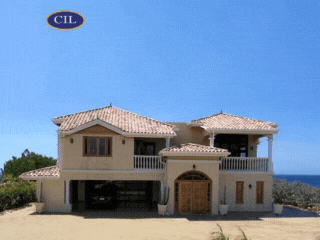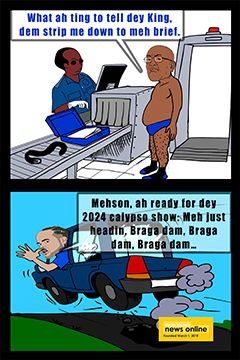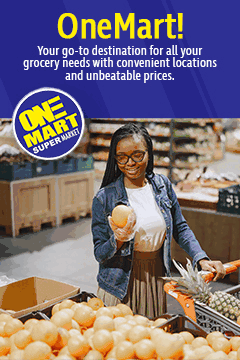Discussion needed on Caribbean economy – Natalio Wheatley
“I think other countries have seen it fit to come together in their best interest and I think we really have to start discussing [further] the possibility of a Caribbean economy,” Mr Wheatley said during the show aired on January 31, 2013 on a local radio station.
He talked about regional countries that were doing well previously in banana production and ended up turning to tourism as a result of lack of access to preferential markets. This, he suggested, has led to much unemployment and urban poverty within those countries. “Why should we be buying Chiquita and Dole here?” he asked. “Chiquita and Dole are billion dollar companies, they don’t really need our money… they don’t need our support,” he added, “I think in the Caribbean we need to support each other.”
“These things will help us to create more employment in the Caribbean and even reduce costs,” Wheatley said.
One caller agreed with the concept of a ‘Caribbean economy’ and suggested shipping as a means to institute this. “What happened to all those stuff that we make in the Caribbean?” the caller asked after suggesting that he was bothered by a shipping company bringing in a ‘ton load’ of stuff from the United States of America.
Host of the programme, Mr Cromwell Smith aka Edju En Ka, recalled that the Organisation of Eastern Caribbean States (OECS) formed an economic union a few years ago and stated that the process has already begun. He said that CARICOM is what that is supposed to be about as well but “it seems somehow that CARICOM is slower than the eastern Caribbean states.”
He agreed that shipping played a very significant role in the structure and said it presented a great opportunity for captains and shippers in the region. “This is where we have to start paying attention to where we are spending our money… we have to start looking at the shelves, reading labels… if we can’t buy it in the BVI let’s see if we could buy it in the region before we buy it in Europe and North America.”
“What people need to realise,” Mr Wheatley said earlier, “is that what we’re doing right now is hard on a lot of us… people are living pay check to pay check, it doesn’t seem to make sense. Something has to be changed, something has to be different.”
He noted that previously, VIslanders produced a lot of what was needed, “our people were so creative, had so much ingenuity, but now in a modern economy, we’ve completely abandoned the concept of being sufficient in certain areas.”
Guest on the show, Mr Khoy Smith, felt there was a small group or niche of financial controllers who have now infiltrated into the national economy. “What is happening is that you have prices being escalated for goods that you perhaps need but don’t have the amount of funds because of no price control.” He felt it was something that required close attention and suggested that there would be chaos resulting from a situation where regulation was non-existent in the pricing of goods and a simultaneous lack of increase in salaries for workers.
Wheatley concurred and said, “We need to have a real balance in terms of the prices and the salaries that people are making.”










.png)




.png)



.png)






















8 Responses to “Discussion needed on Caribbean economy – Natalio Wheatley”
The Caribbean economy and its export was totally dependent on metropolitan firms. The weakness of this total
dependence started to unravel in the 60 's with the UK 's attempt to join European Common Market and Community, along with the emergence of globilization. In due course, the region lost its preferential treatment for its agricultural products. And it had no plan B; the economies are still floundering, for they cannot compete with multinational corporations. Further, an example of the lack of a plan B is the demised of the Windward Island Banana industry. The. floundering of this industry is an example of passive incorporation as noted in the Theory of Plantation Economy by Lloyd Best. The region need to catching and riding the active incorpotation wave.
The annual rough estimated import bill for the former Anglophone countries is $20B. And among this estimated $20B. there are pro
Further, lets assume that every $1 spent regionally generates $1.20 of additional economic activity. And with a $5M in reduced imports, the additional economic activity is $6M. This can improve employment and put a dent in improving the quality of life and standard of living. Morever, it means Caribbean people working together synergistically to reduce the dependence on metropolitan initiatives and entrepreneurship. We are small dots on the map and to survive we must linked. arms for the progress of the regional. Individually we will stagnate but collectively we can blossom.
Years ago, most of the English-speaking Caribbean exported their produce to Europe, which no longer provides that import market for various reasons. The BVI import market cannot buy all that is produced in other Caribbean islands, due to its much smaller market; and if it could, where would the trade balance be struck? Where would that leave us with free trade? If the same crops are produced in all Caribbean islands, who will buy the produce? Just as individuals of the Caribbean are educated in global ways and knowledge; so too, Caribbean countries and territories must engage in global trade and services. Until, the cost of travelling between islands in the Caribbean is lowered, my opinion is that trade between the islands will not improve. When the fares are lower, then Caribbean people will travel and explore the possibilities of investing or trading and vacationing in other Caribbean islands in a manner that makes a difference. Firstly, though, we must be civil to each other in the islands that we find ourselves.